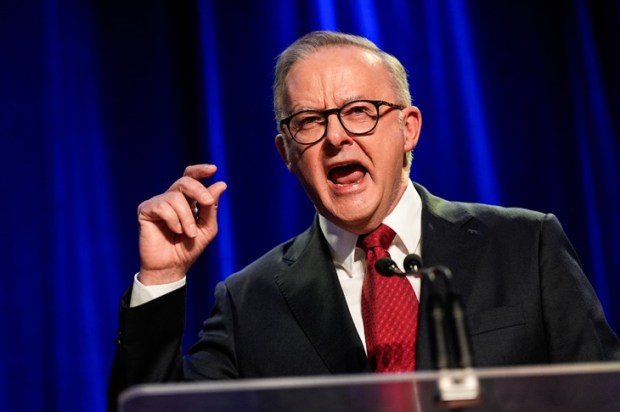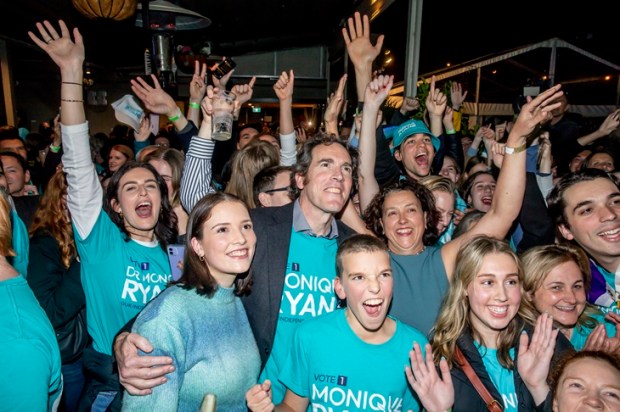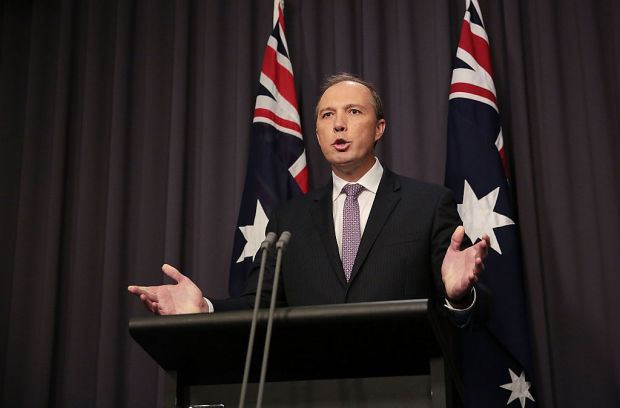On Saturday, October 14, 2023, Australians will vote in a historic referendum on the proposal to entrench ‘The Voice’ in the Constitution.
The long campaign has revealed the contentious and divisive nature of this proposal, which the government promoted as a ‘unifying’ moment for Australia. But quite to the contrary, the referendum, if successful, will cement, on a permanent basis, group rights over individual rights. It will involve the preferment of a group of Australians over all others, merely on the basis of their race – a characteristic over which people do not have control.
For this reason, the long and divisive Voice campaign endured by Australia’s population could well be described as the nadir of our country’s political history.
But the referendum also provides Australians with an opportunity to reject the government’s ill-considered determination to make racism a permanent fixture of Australia’s governance.
For too long, the rights of Australia’s citizens have been eroded with welcoming ceremonies respected by few, flags purporting to represent some people and not others, and ubiquitous place-name changes. Australia is a country where impressionable children are being taught to be ashamed of their diligent forebears who made Australia a wonderful place in which to live and a magnet for migrants who often come from countries where civil rights merely exist in dusty law books, but not in reality.
Considering the prospect of racism becoming entrenched in Australian culture, it is quite astounding that people might still be mesmerised by the slick marketing messages of the government and be cajoled into supporting ‘The Voice’.
The opinion polls point to a solid victory for the ‘No’ case. The latest ABC poll of the polls predicts a vote of 41.2 per cent for ‘Yes’, clearly trailing the 58.8 per cent recorded for the ‘No’ case. If that poll is replicated on October 14, it will be a resounding victory for Australia’s silent majority. This victory would have been achieved despite the relentless and nauseating television campaign of the ‘Yes’ camp.
However, the limitless amount of money thrown at ‘Yes23’, the unqualified backing of ‘The Voice’ by the present cohort of Australian Premiers, the ill-considered and, frankly, opportunistic support offered by corporate Australia and the sporting community may well backfire.
But we should not put the cart before the horse because a race is only decided once the votes are counted. Specifically, we need to worry about the unknown Covid effect which may still spoil the outcome of the referendum. This ‘effect’ relates to the demonstrable conformist nature of Australian society. Indeed, throughout the pandemic era, Australians displayed obsequious compliance with governmental dictates and narratives, even to the extent that it is feasible that ‘conformity’ has become firmly ingrained in the Australian psyche. The demonstrable compliant attitude of Australians revealed their unquestioned acceptance of the explanations given by chief medical officers, whose advice politicians then slavishly imposed on a compliant populace.
Of course, a mature attitude of ‘conformity’ may well serve as a convenient device to reinforce law and order. But, at all times, Australia needs a critical press, a vigilant and questioning attitude to scrutinise government decisions, and a keen willingness to consider alternatives to the government’s narrative. An approach of unquestioned acceptance of all explanations given by government promotes a level of conformity that entirely fails to scrutinise government decisions, and to consider alternatives to the official narrative.
In this context, I am reminded of David Henry Thoreau’s monumental essay On the Duty of Civil Disobedience in which he stated:
That government is best which governs least. … It finally amounts to this, which also I believe ‘That government is best which governs not at all’; and when men are prepared for it, that will be the kind of government which the people will have. Government is at best but an expedient; but most governments are usually, and all governments are sometimes, inexpedient.
If our freedoms are irretrievably affected by the relentless imposition of conforming behaviour, we should not blame the government. Instead, we should blame ourselves for disregarding an important moral imperative – namely that the price of freedom is eternal vigilance.
Hence, we must always remain vigilant and understand both the purposes and limitations of the State. If we do not know the limitations of the State, then the political class will misuse their authority because we are unable to measure when something improper is occurring. For there to be any resistance to attempts at amending the Constitution by inserting racism in it as a permanent fixture, we must be able to recognise that ‘The Voice’ – described by the illiberal elites as a ‘modest’ and ‘simple’ proposal – will inevitably divide society along racial lines.
In this context, paraphrasing the Austrian-British economist F.A. Hayek, Australians have sometimes taken the road that leads to serfdom. Similarly, in his preface to Brave New World, Aldous Huxley remarked:
‘A really efficient totalitarian state would be one in which the all-powerful executive of political bosses and their army of managers control a population of slaves who do not have to be coerced, because they love their servitude.’
Unknowingly, Australians have taken the role of Huxley’s slave-minded people. Because of the way they have been indoctrinated, Australians crave to be ‘looked after’ and fail to energetically protect and value their erstwhile freedoms. This is because, in general, Australians appreciate the comforts of life and tend to avoid conflict. As the result of recent elections indicate, they have a blind faith in their political masters and expect to be the beneficiaries of government’s largesse.
Of course, Australia would be a better country if the idea of slavish conformity had never become so popular and widespread. The point is that uncritical conformity tends to create a culture of dependence on government that exacerbates our social ills by weakening a sense of one’s self-respect, demeaning personal responsibility, and impeding initiative-taking.
With regard to ‘The Voice’, Australians need to resoundingly commit themselves to the implementation of the principle of political equality, which requires that all people, regardless of race are treated equally – a colour-blind society – and any demonstrable problems are sought to be remedied by empowering people to look after themselves and remove the shackles of government dependency.
It is thus time to rediscover the benefits of living in a free, prosperous, tolerant, and colour-blind society. Every person alive today is the result of deeds and misdeeds of the past. We must learn from the past and get on with the task of making a better future for ourselves and those who follow, instead of wallowing in thoughts of victimisation and expressing regret for any historical errors.

























